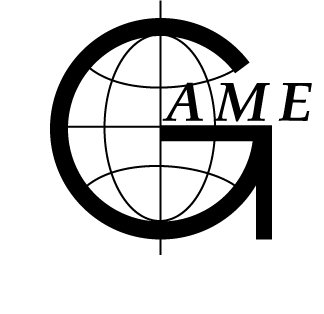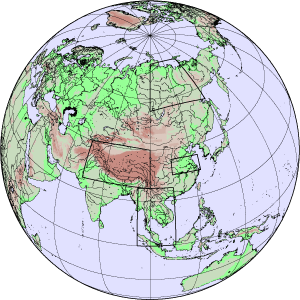|
GAME
Internatinal
Science Panel GISP |
 |
 |
International Science Panel Meeting
Kenji Nakamura
Hydrospheric Atmospheric Research Center, Nagoya University, Japan
The Seventh GAME International Science Panel meeting (GISP) was held at
the Earth Observation Research Center, National Space Development
Agency of Japan (EORC/NASDA) in Tokyo, Japan, for 6 and 7 November,
2002 under the auspices of Ministry of Education, Culture, Sports,
Science and Technology and National Space Development Agency of Japan.
Total 35 participants including observers/experts from 10 countries
joined.
After the opening speeches by Prof. Yasunari, Chairperson of GISP and Mr. Otsuki, Director of EORC/NASDA, we had reports on the GAME related international programs/projects including GEWEX, GHP, CEOP, etc. Profs. Oki and Musiake mentioned on GAME-T. Based on the achievements, GAME-T is expanding to include water applications. We are in the Phase II of GAME, and we tried to emphasize cross cutting studies for the original GAME objective, that is, to clarify the variation of Asian monsoon. Many working group reports were in such a direction. Large scale monsoon system studies were reported by Prof. J. Chan, J. Matsumoto, and H. Ueda. Importance of not only Tibetan plateau heating but also Siberian cold wind outbreak, mid-latitude forcing, etc. were pointed out. One thing we should note is that the discussion was really scientific instead of on policies, implementation, etc. This was what the GAME Phase II is intended. GAME reanalysis data are one of the important fundamental products of GAME. Now the product version is 1.5 and were validated by GPCP, TRMM, etc. Related activities such as satellite projects and WRAP were presented. Model study was supposed to be a key for the understanding of the monsoon system variation. Importance of regional climate models and cloud resolving models were presented. Expectation of short-time forecast and seasonal forecast were expressed. GAME data archives and distribution are going on well with a big effort of Mr. Takahashi, MRI/JMA. GAME provided us with a big amount of unique data which should be kept for a long time. Project activities and observation related to GAME and to the future of GAME were reported from China, Russia, Thailand, Myanmar, Vietnam, Malaysia and Mongolia.
Many future workshops were proposed along with cooperative research and training. Many people were interested in the monsoon onset in Indochina region. It was recognized that the monsoon onset is not part of GAME-Tropics but an important part of GAME itself. An important workshop on monsoon modeling in March 2003 (reported by Prof. Kimura in page 8) was proposed and agreed. Extended multi-year GAME database (1997-2002) were proposed and the concept was agreed.
How to close GAME and what follow-on activity we should have would be the main subject for the next GISP. In 2004 we planned to have the last GISP and the last International Conference.
After the opening speeches by Prof. Yasunari, Chairperson of GISP and Mr. Otsuki, Director of EORC/NASDA, we had reports on the GAME related international programs/projects including GEWEX, GHP, CEOP, etc. Profs. Oki and Musiake mentioned on GAME-T. Based on the achievements, GAME-T is expanding to include water applications. We are in the Phase II of GAME, and we tried to emphasize cross cutting studies for the original GAME objective, that is, to clarify the variation of Asian monsoon. Many working group reports were in such a direction. Large scale monsoon system studies were reported by Prof. J. Chan, J. Matsumoto, and H. Ueda. Importance of not only Tibetan plateau heating but also Siberian cold wind outbreak, mid-latitude forcing, etc. were pointed out. One thing we should note is that the discussion was really scientific instead of on policies, implementation, etc. This was what the GAME Phase II is intended. GAME reanalysis data are one of the important fundamental products of GAME. Now the product version is 1.5 and were validated by GPCP, TRMM, etc. Related activities such as satellite projects and WRAP were presented. Model study was supposed to be a key for the understanding of the monsoon system variation. Importance of regional climate models and cloud resolving models were presented. Expectation of short-time forecast and seasonal forecast were expressed. GAME data archives and distribution are going on well with a big effort of Mr. Takahashi, MRI/JMA. GAME provided us with a big amount of unique data which should be kept for a long time. Project activities and observation related to GAME and to the future of GAME were reported from China, Russia, Thailand, Myanmar, Vietnam, Malaysia and Mongolia.
Many future workshops were proposed along with cooperative research and training. Many people were interested in the monsoon onset in Indochina region. It was recognized that the monsoon onset is not part of GAME-Tropics but an important part of GAME itself. An important workshop on monsoon modeling in March 2003 (reported by Prof. Kimura in page 8) was proposed and agreed. Extended multi-year GAME database (1997-2002) were proposed and the concept was agreed.
How to close GAME and what follow-on activity we should have would be the main subject for the next GISP. In 2004 we planned to have the last GISP and the last International Conference.